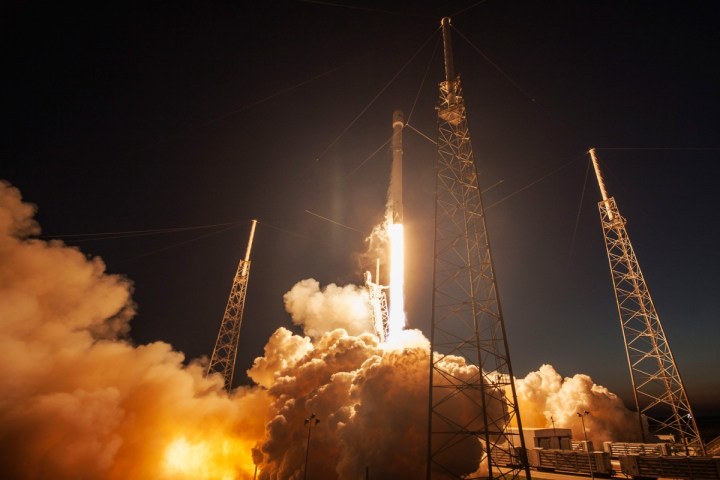

With a success at-sea landing now in the books for SpaceX, the company will now focus on replicating the landing in an effort to dramatically reduce the costs associated with rocket launches. In addition to the barge landing, SpaceX has also successfully re-landed a rocket on land, however, landing at sea is preferred as it allows the agency to preserve fuel.
Original text:
SpaceX CEO Elon Musk is a busy man. After lifting the curtain on the much-anticipated Tesla Model 3 last week, it’s now Musk’s aerospace agency that is gearing up to make headlines with its latest launch from Florida’s Cape Canaveral. Officially scheduled to take place no later than 1:43 p.m. PST (webcast posted below), SpaceX’s Falcon 9 rocket plans on sending a massive cargo to the International Space Station (of which will contain an inflatable space station habitat) but perhaps most noteworthy is the fact the agency intends to once again attempt a barge landing of its rocket. If successful, it would officially give Musk two rocket landings to Jeff Bezos’ three; not that anyone’s keeping count, or anything.
For those unaware, SpaceX attempted a barge landing just last month on March 7 but didn’t quite get the results it had hoped for. To be fair, however, Musk did say shortly after the failed landing that he “didn’t expect this one to work,” so even America’s favorite innovator knows when to call a spade a spade. Concerning Friday’s launch, it is officially the eighth of fourteen total resupply missions NASA has contracted SpaceX to execute via its Commercial Resupply Services program. However, if successful, it would clock in as just the seventh cargo shipment to actually reach the ISS as a Falcon 9 which launched last June exploded just over two minutes after launch.
But enough about past launches. If today’s Falcon 9 successfully lands on SpaceX’s barge dubbed Of Course I Still Love You, it will be a monumental achievement not just for the agency but in the pursuit of reusable rockets. At this year’s Satellite 2016 conference, SpaceX president Gwynne Shotwell stressed the importance of reusable rockets by acknowledging that a successfully landed rocket would feasibly cut launch costs by roughly 30 percent. Moreover, landing on the barge (instead of on land, ahem, Bezos) is an effective way to conserve fuel and represents a much safer way to bring the rocket back down.
As of this writing, launch probability stands at 90 percent so barring a weather change, it’s likely SpaceX’s launch will be good-t0-go. If for any reason the launch is cancelled, the agency will give it another go on Saturday, April 8 at 1:20 p.m. PST. A live webcast of the launch will air via SpaceX’s webcast roughly twenty minutes before the launch window opens.

